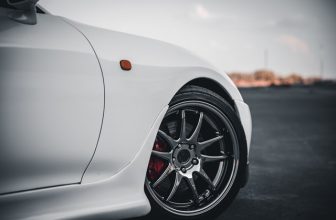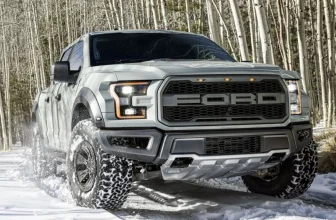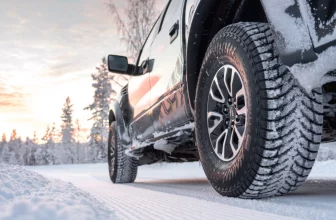How much time and money do you spend changing tires as seasons change? Does the onset of winter make you want to stop driving? Do you worry about the reliability of your tires during the hot weather?
Weather variations can turn driving chaotic. That is why drivers need performance all-season tires. They are the real workhorses that will deliver balanced performance irrespective of the prevailing weather.
Extreme weather conditions should not intimidate you. Different brands of performance all-season tires will balance traction, handling and comfort irrespective of the road conditions. You can have peace of mind knowing that one set of tires provides a dependable year-round performance.
This article highlights everything that you should be aware of regarding performance all-season tires, ranging from the technical and physical specifications, frequently asked questions and comparison to other categories. We break down the complex jargon so that you have an easy time selecting the right set of tires for your precious car.
[table id=14 responsive=’collapse’ /]
What Defines Performance All-season Tires?
Deep sipes
Each driver has at one point driven over wet and snowy roads in winter. At such time, you feel as though you are losing control over your vehicle. Traction is at a minimum. These troubles increase as the depth of the snow or ice increases.
Drivers experience similar problems when driving over loosely-packed roads, sand and mud. Performance all-season tires have deep sipes that improve their traction over these surfaces. They increase the effective biting edges, creating sufficient snow-on-snow traction.
Optimized groove design
Irrespective of the tread patterns, performance all-season tires have optimized groove designs, both circumferential and lateral. These grooves cut through surface run-offs when driving in rainy conditions or any wet road surfaces. They evacuate plenty of water, ensuring that the car retains grip on the road for predictable handling and safe driving.
Flexible tread compound
Freezing temperatures impede the stability and rigidity of rubber compounds. Summer heat tends to wear treads faster. Manufacturers use blends of advanced tread compounds that are flexible and can achieve optimum performance levels across the seasons. The tread compounds are durable and replicate in the attractive warranties offered by the manufacturers.
Internal reinforcement
Performance all-season tires are suitable for high-speed driving. They should remain stable at any driving speed. At the same time, the tires need to absorb surface shock for a comfortable ride. Most performance all-season tires have steel belts in their internal casings, usually reinforced with nylon, polyester or polyamide plies. These keep the tires stable when cornering at high speed. What’s better, some manufacturers utilize tear-resistant materials beneath the treads to enhance the durability of the tires.
Tread patterns
Driving on performance all-season tires is all about achieving remarkable traction at any time of the year. They are equally vital for balancing safety at any speed and driving comfort. Noises are inevitable as the rubber hits the road.
Manufacturers strive to keep the noise levels as low as possible by optimizing the tread patterns. That way, the tires absorb as much road noise as possible to keep the car’s interior silent. Occupants can converse without trouble while driving on any road.
Pros & Cons of performance all-season tires
How do Performance All-season Tires Compare to Similar Types of Tires?
Summer tires appear as the closest competitors to performance all-season tires. They feature aggressive tread patterns that give them a competitive advantage over other tire categories. Unfortunately, the rubber material stiffens under cold conditions.
Performance all-season tires have unique tread materials that enable them to overcome the driving challenges in winter. Their performance in summer is slightly lower in comparison to that of performance summer tires. In winter, performance all-season tires provide superior performance than summer tires.
Although performance all-season tires offer great performances across seasons, they rank lower than ultra-high performance all-season tires. The latter provides better traction, more responsive handling, and braking capabilities whether you are driving in winter or summer.
Performance all-season tires have modest capabilities when driving off-road. They provide sufficient grip to traverse hard-packed gravel roads. Roads with larger rocks are more challenging. The same applies to roads with deep mud. For better off-roading experiences, it is preferable to use mud-terrain or all-season all-terrain tires.
Performance all-season tires perform decently in light snow. However, it is a struggle when driving in deep snow and ice. That is where winter tires come in. By comparison, specialized winter tires will provide superior traction, better handling and predictability than performance all-season tires.
Verdict
Performance all-season tires are a good alternative for drivers operating on a lean budget yet wish to enjoy a quality ride year-round. They are available in multiple sizes and brands, fitting perfectly on different car models.






